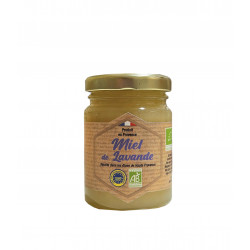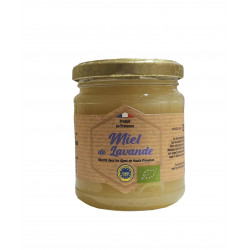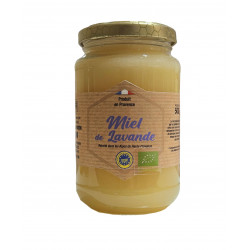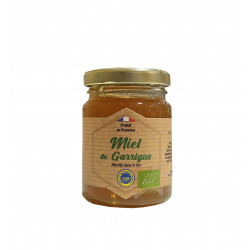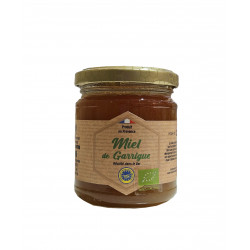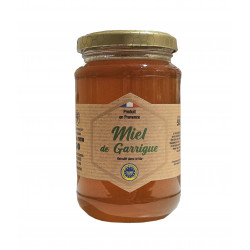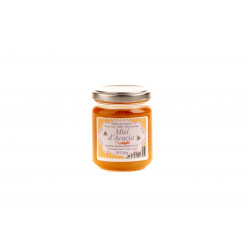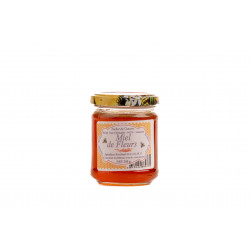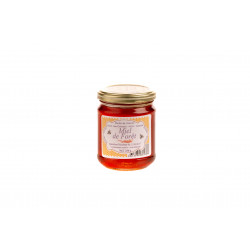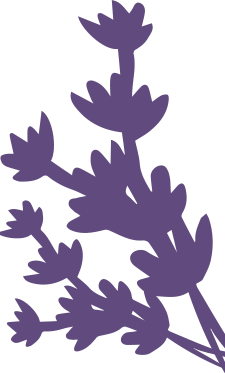WHY IT'S IMPORTANT TO SAVE OUR BEES!

In May, bees are in the spotlight!
On the 20th of this beautiful month of May 2022, wild pollinators will be in the spotlight with World Bee Day dedicated to them!
Why May 20, you might ask?
Simply because May 20 is the birth date of Anton Jansa, who was born in Breznica, Slovenia in 1734, and was a pioneer of modern beekeeping. Gifted with a talent for painting, he soon discovered a keen interest in beekeeping. Within a few years, he became the first beekeeping teacher appointed by royal decree on Austrian soil.
It was in 2018 that the United Nations decided on a World Bees Day to draw attention to the key role played by these small insects, the threats they face and the importance of the pollination process, fundamental to the survival of ecosystems.
And this year, the French National Assembly has unanimously voted "L'Abeille, Grande Cause Nationale 2022" (The Bee, Great National Cause 2022) to combat the Asian hornet.
Who are these pollinators and what are their roles?
Did you know? Bees are the ambassadors of pollination, of course, but they're not the only ones! Butterflies, bats, hummingbirds, moths, flies, wasps and many other vertebrate and invertebrate specimens also play a key role in pollination.
There are between 25,000 and 30,000 species of bee, which, along with other species, gather pollen and transport it from flower to flower on pistils. Once the flower has been fertilized, it is transformed into a seed or fruit.
75% of our food diversity depends on the work of our bees. Without these workers, our food would not be the same. In the summer months, we wouldn't be able to enjoy strawberries, melons, cucumbers, apples, pears, broccoli, hazelnuts, cherries, coffee, cocoa... or, of course, honey!
They are the guarantors of biodiversity, essential to the resilience of agro-ecosystems to the negative effects of climate change, and help to ensure food security for the world's population.
Why are our bees in danger?
It's a global catastrophe that's putting humanity at risk! Our bees are disappearing for a variety of reasons, including climate change, the disappearance of natural habitats, pesticides, new viruses and pathogens, and phytosanitary treatments....
Just imagine! 80,000 bees can be killed by a single kernel of corn coated with 0.5 mg of clothianidin, one of the most dangerous pesticides yet authorized!
So what can be done to protect our bees?
Want to help save bees? Here are a few tips to adopt this spring:
1) Buy local honey
By consuming local honey, you support local beekeepers and retailers.
2) Grow flowers in your garden or on your balcony
To protect bees, it's important to plant flowers, trees or shrubs that encourage the development of pollinators, such as this selection of native melliferous flowering plants: Clover, wild garlic, cosmos, aster, scabious, lavender, poppy, clematis, perennial sage, wisteria, honeysuckle, aromatic plants....
3) Stop using pesticides at all costs
We now use natural techniques and do away with pesticides and other weed killers that are harmful to bees.
4) Welcome bees into your garden
Install a shelter for bees and other wild pollinators to protect them and let them live out their lives.
5) Sponsor a beehive
Through a number of associations, you can sponsor a beehive and give them a chance to develop in peace and quiet.
6) Fight against Asian hornets
A dozen Asian hornets can destroy an entire colony of bees! Don't hesitate to destroy their easy-to-recognize spherical habitat by informing your local town hall.
7) Provide a watering place
It's important to provide them with saucers of water with a few pebbles inside, so that they can rest and drink in peace.
8) Choose the color of your plants
Bees can distinguish between blue, green and violet. Think about this when you shop!
9) Talk about it
Don't hesitate to talk about it with friends and family, at work and with your children, to make them more aware of the bees' cause!


 Cookie preferences
Cookie preferences
 Interview with Jean-Christophe, beekeeper on the Plateau de Valensole
Interview with Jean-Christophe, beekeeper on the Plateau de Valensole
 Behind the scenes of our shopping site
Behind the scenes of our shopping site
 Love forever ♡
Love forever ♡
 Focus on 5 essential oils to get you through winter
Focus on 5 essential oils to get you through winter
 Much hapiness and nothing else!
Much hapiness and nothing else!
 Buongiorno Firenze!
Buongiorno Firenze!




